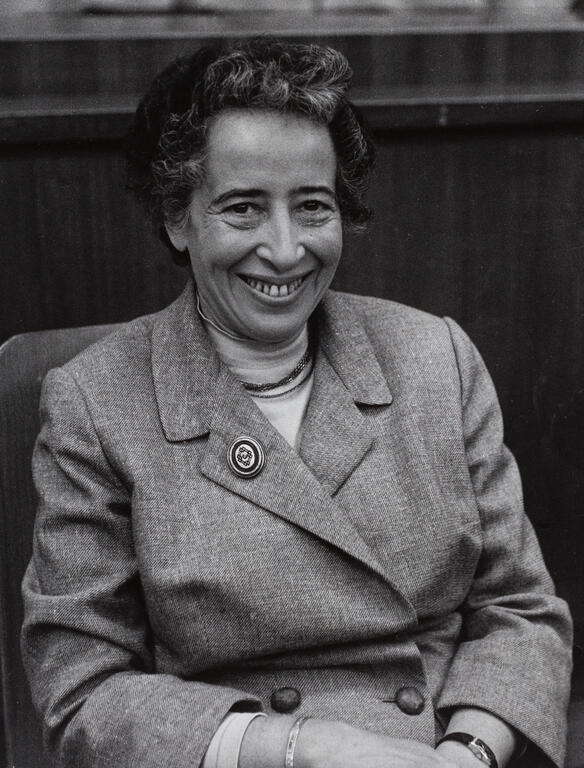Quote:
“We became aware of the existence of a right to have rights […] only when millions of people emerged who had lost and could not regain these rights […].”
Source:
Quote: Hannah Arendt (1958): The Origins of Totalitarianism. Cleveland and New York: Meridian Books, p. 296-297.
Picture: By Barbara Niggl Radloff - sammlungonline.muenchner-stadtmuseum.de, CC BY-SA 4.0, Wikimedia, Creative Commons.
Author Bio:
Hannah Arendt (1906-1975) was a Jewish German-American theorist and journalist. She was forced into emigration by the National Socialists. This experience influenced her intellectual work.
Context:
 The quote comes from Arendt's essay ‘The Rights of Man: What Are They?’ (fall of 1949), reprinted in her book "The Origins of Totalitarianism". With reference to so-called Displaced Persons (DPs), stateless people, who cannot invoke their citizenship and associated rights, Arendt points out that human rights cannot protect the disenfranchised, namely those who most urgently need the protection of human rights. Human rights must therefore be rethought based on those who are denied even human rights. Arendt's considerations relate above all to the disenfranchised and stateless as a result of National Socialist persecution and her own experience as such.
The quote comes from Arendt's essay ‘The Rights of Man: What Are They?’ (fall of 1949), reprinted in her book "The Origins of Totalitarianism". With reference to so-called Displaced Persons (DPs), stateless people, who cannot invoke their citizenship and associated rights, Arendt points out that human rights cannot protect the disenfranchised, namely those who most urgently need the protection of human rights. Human rights must therefore be rethought based on those who are denied even human rights. Arendt's considerations relate above all to the disenfranchised and stateless as a result of National Socialist persecution and her own experience as such.Further Reading:
*Leila Faghfouri Azar (06/12/2019): Hannah Arendt: The Right to Have Rights.
*Michael Rothberg (2009): At the Limits of Eurocentrism. Hannah Arendt’s "The Origins of Totalitarianism", in Michael Rothberg: Multidirectional Memory. Remembering the Holocaust in the Age of Decolonization. Redwood City: Stanford University Press, pp. 33-65.
Year:
1949